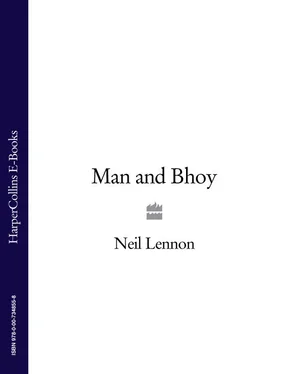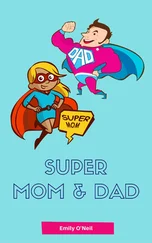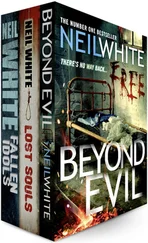What really hurt was that the two members of the coaching staff who had worked most closely with me, Tony Book and Glyn Pardoe, thought otherwise, believing that I could have a future with City.
I was angry and bitter for some time afterwards. I felt I had done enough to justify being kept on, but I learned as I progressed in football that such oustings are often not the fault of the player and that managers can get it wrong, about youngsters in particular. I myself have often said that I am a late developer, so I want to make it clear that I do not hold any grudges against Howard or Manchester City in any way whatsoever. He had a decision to make and he took it with a view to what was best for the club at the time. He just concluded that either I was not going to make the grade at Maine Road or that I would not be suitable for the kind of team he was trying to create. I don’t blame him for that—even though he was wrong!
The worst thing was that I then had to go back to the dressing room and relay the verdict to my colleagues and peers. I just could not face them. I went into the toilet beside the manager’s office and immediately burst into copious tears. It must have taken me about five minutes to compose myself. Eventually I made my way into the dressing room but as soon as I had told them, I started crying again anyway.
My first thought was for Claire. Things were going so well between us, but here was I with no job, no prospects and probably no money in a few weeks’ time. It already looked to me as if I would have to go home to Lurgan and start all over again, so I just could not see a way ahead for us. It appeared that I would lose my career and my girlfriend in one go.
All the lads in that dressing room were sympathetic and gave me plenty of advice, most of which was not to panic and try to find another club as soon as possible. I think I have shown over the years that I’m a pretty resilient character, but back then as an eighteen year old it was difficult to bounce back. Eventually I told myself that I would show Howard Kendall that he had made a mistake and that I could make it as a professional.
Luckily for me, there were seven or eight reserve games left so I could put myself in the shop window. My contract did not expire until the end of June so I had about two months to find another club, and I soon became pretty determined to do so as I wanted to stay in England and hopefully play for a team near Manchester and Claire.
I also had another method of showing the football world that I was worth signing. At the beginning of April 1990, I had been picked for Northern Ireland’s Under-21 squad to play against Israel at Coleraine—the place where I had enjoyed such good times in the Milk Cup. Perhaps that was a good omen for me, because manager Billy Bingham put me straight into the team to play Israel.
This was a memorable game for me as it marked my debut at that level, but I’m sure the other players who took part and the small number of spectators who attended will remember it for other reasons, as there was a blizzard in the second half. The match had to be abandoned two minutes from time as the floodlights failed—the second time that had happened in matches between the two countries, the first time being in Tel Aviv in a World Cup qualifier.
I have to say I was never totally impressed with Billy Bingham, not least because he had the annoying habit of calling me Noel, and my dad was amazed and angry that the manager of the national football team couldn’t even get my name right. He did it so often that even the football writers picked up the habit and one of the reports of that match against Israel refers to me as Noel Lennon. It was not as if they could confuse me with Noel Bailie, who was also in the team that night, as we look nothing like each other.
It was Noel who set up the move for our opening goal, scored by Iain Dowie of Luton Town. Banini should have scored for Israel after thirty-eight minutes but he dallied and I just managed to nick the ball off his toes. Israel did equalize after eighty-five minutes but Paul Gray of Luton, who had come on as a substitute, scored three minutes later. We were still celebrating when the floodlights failed, and since the game was a friendly the score stood in the record books.
I knew I had done well and a few weeks later I was delighted to be picked for a rather more prestigious game, this time at Under-23 level. Although the players of both sides often play alongside each other in England, games between Northern Ireland and the Republic of Ireland are always keenly contested and the match at Shamrock Park, Portadown, on 15 May was no exception.
By that time, I was feeling rather better about life as I was doing very well in the City reserves and had already received a couple of calls from scouts and one manager. The first person to take an active interest and come along to see me play was Des Bennett, a scout acting on behalf of Crewe Alexandra of the Third Division.
Des watched me play a couple of times and persuaded Crewe’s manager Dario Gradi to come along and see me. After he had watched me a couple of times, Dario called to say ‘We would like to take you aboard at the end of the season.’ No details were discussed but at least I had an offer.
Obviously I was still hoping for an offer from a bigger club, and the Under-23 game gave me an ideal opportunity to show what I could do. A couple of newspapers highlighted the fact that I was in the shop window and I told them that I felt I had been badly treated but was still ‘determined to make the grade’.
Gerry Taggart captained the side that night, having already made his debut at senior level, and my City colleague Michael Hughes also played. There were several managers from big clubs in the stadium that night, such as Chris Nicholl of Southampton, and I wasn’t the only one out to impress them.
In the first half in particular I played out of my skin, as did several others in our team, and we went in at half-time 2-0 up. The Republic fought back and equalized when John Sheridan tripped over me in the penalty box and the referee pointed to the spot—the match reports say I brought down John but of course we full-backs, as I was then, never see it like that. David Kelly of Leicester scored from the spot and also hit the winner ten minutes from time.
To lose 2-3 after being 2-0 up against our old rivals was hugely disappointing to put it mildly, but at least I had performed well overall. Back in Manchester, there was better news for me as John Rudge, the manager of Port Vale who were then in Division Two, called to say he was interested in signing me. He explained that he still had to sort out who was going and who was staying but he would get back to me once that process was completed.
Dario Gradi, meanwhile, had invited me down to Gresty Road, home of Crewe Alexandra. I did not know much about the town or the club, so I was in for something of a surprise. I knew the Alex, as locals called them, were nicknamed the Railwaymen because of the town’s huge train station and links with the rail industry, and I knew of Gradi’s growing reputation, but that was about the extent of my knowledge.
It was a complete culture shock when I arrived at the club. Maine Road was not the biggest and best stadium in the First Division, but it was a light year ahead of Gresty Road. I suppose it was very traditional in an old-fashioned Spartan way, but the facilities left a lot to be desired. The gym, for instance, was nothing more than a sweatbox with some weights—I was to get to know it all too well though, as you will discover.
Dario was impressive as he communicated his plans for the club, but when we began to talk money I was a bit disappointed. As a reserve player at City, I had earned £100 per week, so as a first-team player—even in the Third Division—I was expecting to earn double that. But Dario outlined the club’s budget and financial problems, and offered me a two-year deal worth £110 per week, plus bonuses.
Читать дальше











